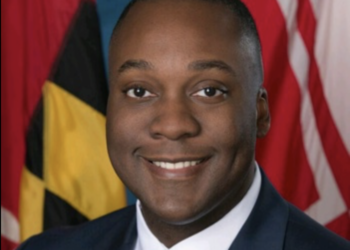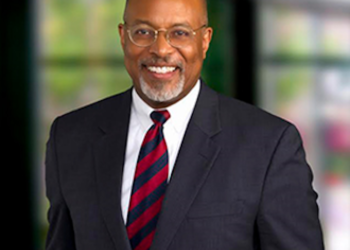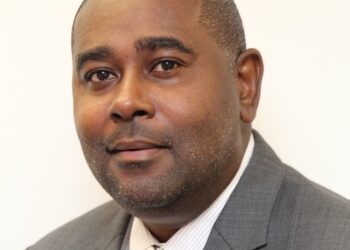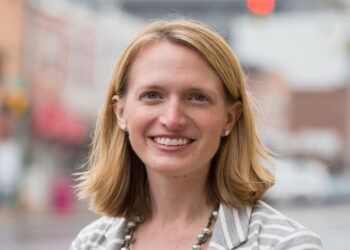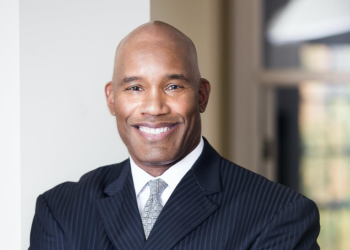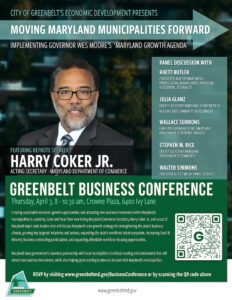
Title: U.S. Congressman (MD-04)
Industry: Public Service & Government

A: So my morning routine, although during the pandemic it has changed dramatically, but my sort of pre-pandemic routine that I’m trying to get back to is that I usually get up 5 or 5:30am and go to my desk and review emails, the different sources of news that I get and then finalize my preparations for the day. It might be reviewing a speech I’m going to give or questions that I’m going to ask during a congressional hearing that day. It might also include replying to emails or texts. Then I’ll try to get a short workout in – at least three days a week. Maybe a run or walk and then some upper body strengthening and core conditioning type of exercises that I can do at home. After that, I’ll have a cup of coffee – rarely do I eat breakfast – then I’m out the door heading to my office on Capitol Hill. Probably the biggest change is that since the pandemic is obviously I’m not getting out the house.

A: As a member of congress and the legislative branch the most obvious work we do is pass legislation but it’s not what we do a whole lot of…I would say that what I do, I’m a communicator. I am a connector who connects my constituents to resources with my staff where we problem solve. Whether it’s trying to design legislation or appropriation on Capitol Hill to meet the needs of my constituents or anyone who has come to us and asked for assistance; or whether it’s responding to a constituent request for assistance either for VA benefits or an expedited passport…I’m a problem solver.

A: One of the last books I read is a book called “Winners Take All” by Anand Giridharadas. It’s a book about how the (sort of) social elites of our country have assumed the responsibility of “changing the world,” but in many ways they contribute to the inequities and inequalities that exist in this world. The book sort of advocates that the best way to changing the world is to create equality, opportunity, and equity through public institutions, as well as, through democratic institutions like the State Legislatures and the Congress. Also, through public agencies, elected officials and the court, because it’s only when you have institutions that are really ‘of the people’ and that’s what government really is…can you get institutions and leaders to affect the kind of changes you want to address with respect to inequities and inequalities and creating opportunities for more people. So on the one hand, you know, we should appreciate and encourage let’s say philanthropy. Philanthropy doesn’t always necessarily go to eliminating the underlying cause for the philanthropy. We have many philanthropic institutions that give to those who have basic food insecurity or homelessness or alcohol and drug addictions, but are we really assisting those people? And it’s important that we do – we should always assist our neighbors in need, but we’ve got to look beyond that and go to the fundamental conditions or the fundamental factors that create those conditions and that’s something that a robust public sector should do.

A: My industry is government and we created government to protect the public welfare. To provide domestic tranquility and to promote the general good and we’re often in government asking businesses to do things they otherwise wouldn’t do. For example, the automobile industry wasn’t going to do seatbelts until the Federal Government told them that “you will.” Many of the occupational safety standards, child labor laws were necessary because the industry wouldn’t do that. My industry is about ensuring that behavior doesn’t do harm to the public and it promotes well-being and the general good. In response to all of that, what you’re seeing is a consolidation in so many industries. Whether it’s In hospitality, financial services, aviation or even in law firms, you’re seeing a consolidation. And I think a lot of that is happening as response to the role of government. And I don’t say that in a bad way…that government is over regulating but in this very complex world in which we live where government does have to regulate, where it does have to set the boundaries, I think a lot of private industry participants believe the only way that we can sort of go toe-to-toe with the government is if they get larger and bigger. I think as a result the trend has been these mergers, acquisitions and consolidations.

A: For me it’s maintaining a checklist and a calendar. Maintaining a good checklist where I’ve grouped things by ‘A, B and C’ priorities, and ensuring that I’m not reading the same email or text more than once. So when you read it and you act on it. When I was first starting out of college – and this was back in the day when you had literally had an inbox and outbox on your desk – I was taught to not pick up a piece of paper in your inbox more than once. When you pick it up, you act on it and you put it in your outbox. So, it’s a checklist, a calendar and it’s trying not to be repetitive or let’s say duplicative in sort of managing my communications and correspondence.

A: I think without a doubt it’s that you have to be willing to take the advice of people who’ve already experienced what you’re either experiencing or about to experience. I’m a big believer in learning by doing and learning through experience and trial and error. Sometimes people confuse that with not taking advice or not seeking out advice and I think it’s a mistake. I often say to people who work for me and often I say to my kids, give me 15 minutes of your time so I can share with you 15 years of my experience. Do with it what you want. Value it how you want, but I think that all too often – and it’s happened to me in my life, you believe that “Hey I can do this on my own, I’ve got to learn how to do it” and you equate that with I’m not going to necessarily ask people for advice and counsel. I think that you can do things on your own. You can be successful with your talents, your ability and your skills and over time your experience but that doesn’t mean that you should not tap into the experience of others to shape and guide how you approach things.
____________
About Anthony G. Brown:
Congressman Anthony Brown represents Maryland’s 4th Congressional District. He serves as the Vice Chairman of the House Armed Services Committee and is a member of the House Committee on Transportation and Infrastructure, Committee on Natural Resources and the bipartisan Committee on Ethics. Congressman Brown is also currently a co-Chair of the New Democrat Coalition’s National Security Task Force.
A retired Colonel in the United States Army Reserve, Congressman Brown’s military record spanned more than a quarter century as an aviator and JAG officer, during which time he graduated first in his flight class and received both Airborne and Air Assault qualifications. Congressman Brown was awarded the Legion of Merit for his distinguished military service. In 2004, he was deployed during Operation Iraqi Freedom, earned a Bronze Star, and became one of the nation’s highest-ranking elected officials at that time to serve a tour of duty in Iraq.
In 1998, Congressman Brown was first elected to the Maryland House of Delegates to represent Prince George’s County. He went on to serve eight years as Lt. Governor where he focused on higher education, economic development, healthcare, domestic violence and foster care.
Congressman Brown graduated Harvard Law School in 1992, and then went on to clerk for the Honorable Eugene Sullivan, Chief Judge on the US Court of Appeals for the Armed Forces. He was an associate attorney in the litigation and securities practice groups in the Washington, DC office of Wilmer Hale, and later practiced zoning and land use law with the Maryland firm of Gibbs and Haller. Congressman Brown graduated Harvard College with honors and a degree in Political Science. He and his wife Karmen reside in Prince George’s County.
Social Media:
Congressional Website: https://anthonybrown.house.gov


